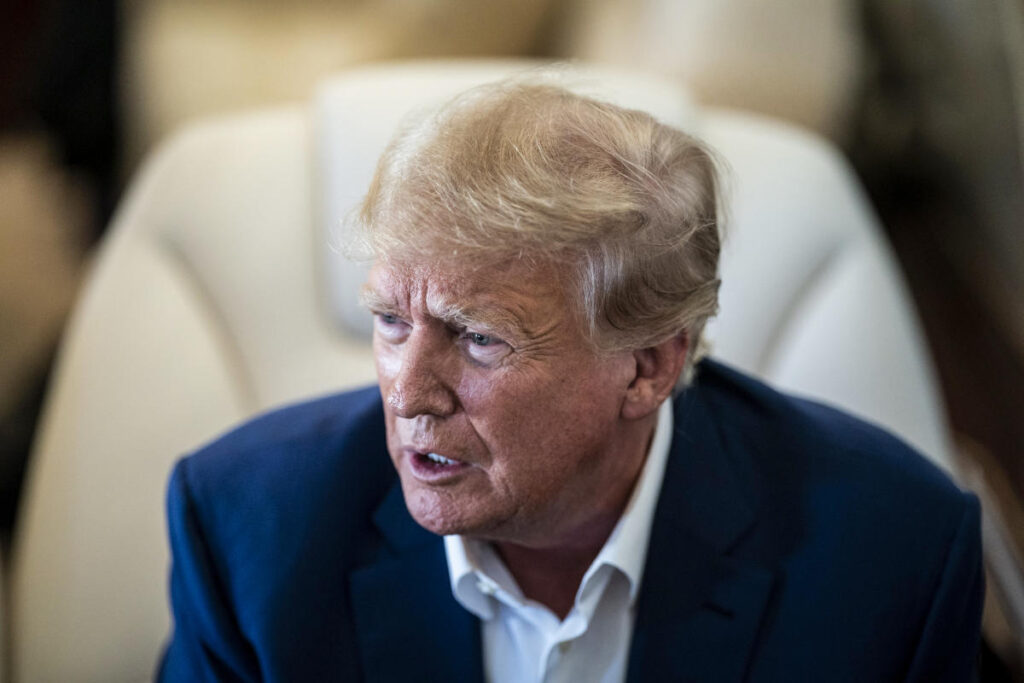For days, former President Donald Trump has been on a tear on social media, railing against District Attorney Alvin Bragg’s hush money investigation, his former lawyer Michael Cohen, prosecutors and, more recently, the judge presiding over the historic case.
Without evidence, he’s referred to Judge Juan Merchan as “Trump Hating” and suggested that Merchan was “handpicked” by Bragg. In an interview Sunday on ABC’s “This Week,” Trump’s lawyer, Joe Tacopina, was asked about the attacks and whether he believes the judge harbors any slant.
“No, I don’t believe the judge is biased. I mean, the president is entitled to his own opinion,” Tacopina said.
Trump has referred to Bragg as an “animal” in a post on his social media platform, Truth Social. In an earlier Truth Social post, he appears to have shared an article that included an image of him wielding a baseball bat juxtaposed next to an image of Bragg’s head. That post was deleted.
All defendants have a right to vigorously defend their innocence, but Trump can’t threaten the prosecutor without risking other legal charges under New York law. The judge could also issue a gag order to prevent Trump or his attorneys from speaking publicly about the case.
NBC News spoke with former prosecutors about how and when a judge might limit speech about a case.
What’s a ‘gag order’?
A gag order is a judicially imposed order restricting parties, attorneys and/or witnesses in a pending case from making any public statements about it. The standard courts look to is whether such statements have a “reasonable likelihood” of possibly preventing a fair trial.
Merchan could issue one himself, or do so at the request of either side, but former prosecutors say they are not used frequently in New York. It’s up to the judge to craft the order as narrowly as possible to protect free speech rights, while at the same time preserving the defendant’s right to a fair trial. Often a defendant’s attorney will request that a judge issue one — whereas in this case, it’s Trump own statements that have fueled speculation about whether Merchan will issue one.
The fact that Trump is running for public office raises the stakes and puts any restriction on his First Amendment rights in sharper view, but Robert C. Gottlieb, a former assistant district attorney in Manhattan, said that shouldn’t matter.
“He’s no different than anyone else,” said Gottlieb of Trump, noting that while one cannot ignore the political implications of the case, “that does not give him [Trump] more rights to influence jurors or to threaten or incite violence. In that courtroom, he is only a defendant.”
Gottlieb also pointed to ethical rules prohibiting Trump’s attorneys from making public statements intended to prejudice the jury pool or influence the outcome of the trial.
What’s the likelihood the judge will impose one?
Other former prosecutors are more skeptical that a gag issue will be issued at Tuesday’s arraignment based on Trump’s social media posts thus far.
“I think it would be challenging to do it out of the box,” said Daniel Horwitz, another former assistant district attorney in the Manhattan District Attorney’s Office, now in private practice. “There usually has to be a predicate for it.”
Horwitz suggested it’s more likely that Merchan will issue a warning to everyone in court Tuesday and set some “ground rules,” essentially putting Trump on notice that if he talks, “he does it at his peril.”
Gottlieb has appeared before Merchan and agreed that, at minimum, the judge will make a record of what Trump has said about the case thus far, and admonish him against making any statements that could influence the jurors.
“I cannot believe that it won’t be addressed,” said Gottlieb. “You can’t ignore what has happened.”
Even if the judge opts not to impose a gag order, former District Attorney Cy Vance, who immediately preceded Bragg, noted that Trump risks violating other laws if he continues to make statements about the case.
“There is a crime. That’s called obstructing governmental administration under New York law,” Vance said on MSNBC’s “Inside with Jen Psaki” on Sunday, explaining that it would involve efforts to intimidate a public official. “[I]f I were Mr. Trump’s lawyer I would tell him to knock it off because it’s not going to help him with the judge and if it is charged, that’s not going to help him with a jury.”
This article was originally published on NBCNews.com
[ad_2]
Source link

